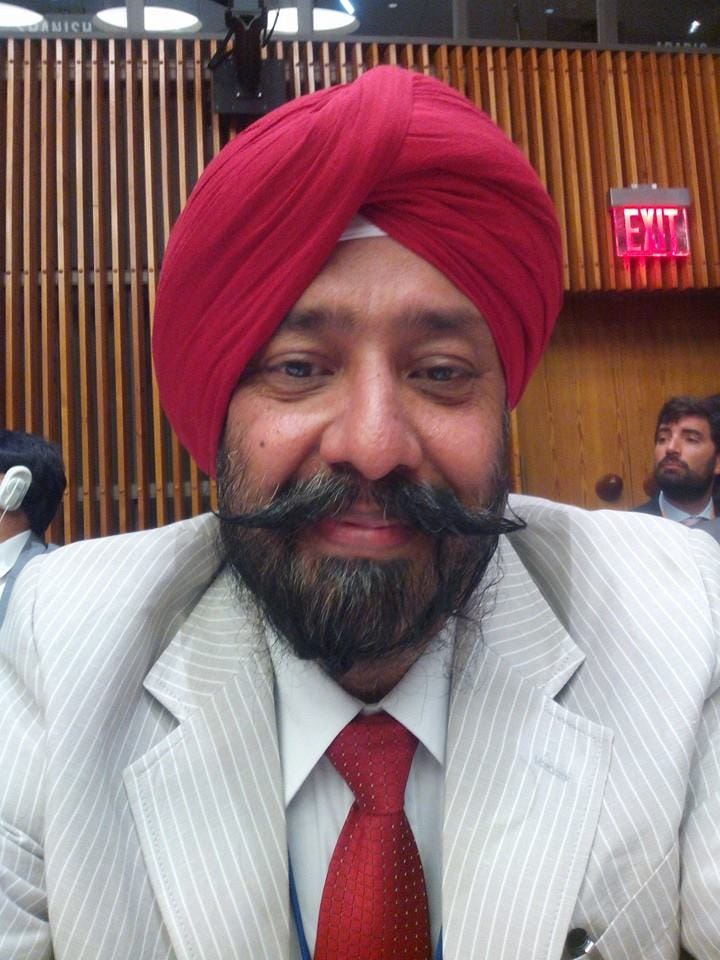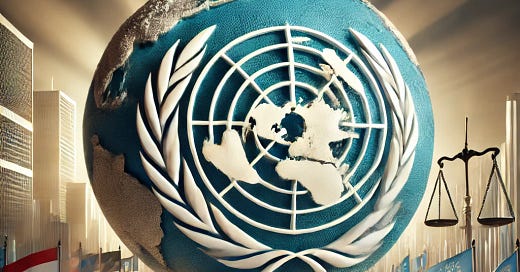UN Foundation Day
The United Nations (UN), founded on October 24, 1945, was born out of the ashes of World War II. Its core mission, as envisioned by its 51 founding members—including a still-colonised India—was to prevent the recurrence of such devastating conflict, to promote peace, and foster international cooperation. Over the ensuing decades, the UN has grown in size, scope, and complexity, becoming a comprehensive institution addressing issues far beyond its original mandate.
Yet, as it approaches its 80th anniversary, questions abound regarding its effectiveness in addressing today's complex global challenges. Can an octogenarian UN, with its founding principles and structure largely unchanged, still act as a relevant and effective force for global peace, or is it now hampered by outdated mechanisms?
The Founding and Early Challenges
In the wake of World War II, the establishment of the UN marked a turning point in global diplomacy. Born out of a desire to prevent future conflicts through multilateralism, the UN was immediately confronted by the Cold War tensions between the United States and the Soviet Union. This bipolar world order often led to deadlock within the UN, particularly in the Security Council, where the five permanent members (the P5: the United States, the Soviet Union, the United Kingdom, France, and China) held veto power.
Despite these challenges, the UN persevered and began expanding its role, particularly in peacekeeping operations and humanitarian aid. From brokering peace agreements to launching campaigns for disease eradication and human rights, the UN slowly built its reputation as a global peacemaker.
UN's Role in Middle East Crises
One of the most prolonged and contentious regions for the UN has been the Middle East. Over the decades, the UN has facilitated key agreements like the Oslo Accords of 1993, aimed at resolving the Israeli-Palestinian conflict, and its peacekeeping missions have helped manage delicate ceasefires. However, its recent role in the Middle East has diminished in prominence, as seen in the Israeli-Hamas conflict, where nations like Qatar have played more prominent mediation roles. This suggests a decline in the UN’s influence over regional powers and their conflicts.
Major Crises and Key Successes
Historically, the UN has had its share of successes. The decolonisation movement of the 1960s and 70s saw the UN play a critical role in the peaceful transition of colonies into independent states. Its humanitarian arms, like UNICEF and WHO, have achieved major milestones, such as the near-eradication of diseases like smallpox. Additionally, it has provided a platform for international legal frameworks like the Universal Declaration of Human Rights.
However, its record has not been without failures. The Rwandan Genocide in 1994 is often cited as a key example of the UN's shortcomings—its peacekeeping force's inability to prevent the massacre of nearly a million people still haunts the organisation’s reputation. In more recent times, the ongoing Russia-Ukraine conflict and the violence in Gaza have laid bare the UN's current limitations.
The Ukraine-Russia Conflict and the UN's Stumbling Blocks
The Ukraine-Russia conflict is a clear example of how the UN’s structure, particularly the Security Council, fails when major powers are involved. Russia, a permanent member of the Security Council, wields veto power that makes any serious resolution or action against its invasion nearly impossible. The same structural issues plague the UN's approach to the Israeli-Palestinian conflict, with different P5 members either blocking or weakening resolutions.
In both instances, it becomes evident that the very mechanisms designed to maintain peace have at times contributed to the UN's inertia. The veto power, especially when wielded by a P5 member with direct involvement in a conflict, renders the organisation unable to act decisively.

India's Role and Aspirations in the UN
India’s relationship with the UN has evolved significantly since its participation as a founding member in 1945. India's contributions to UN peacekeeping missions have been immense—over 275,000 Indian soldiers have served in various missions, making India one of the largest troop contributors. From stabilising conflict zones in Africa to participating in critical post-conflict transitions in Asia, India's role has been critical to the UN’s peacekeeping agenda.
India’s quest for a permanent seat on the UN Security Council (UNSC) stems from its growing economic clout, democratic credentials, and sustained contributions to global peacekeeping. Despite garnering support from major powers like the United States, Russia, and France, India's ambitions are often thwarted by opposition from China and the complexities of UNSC reform negotiations.
India’s inclusion in the UNSC is widely regarded as essential for better representation of developing nations and emerging economies in global decision-making processes. However, reform of the UNSC—seen as crucial by many observers—remains elusive, leaving India’s aspirations in limbo.

Is Reform the Way Forward?
As the UN enters its ninth decade, it finds itself at a critical juncture. Its successes in areas like health, human rights, and decolonisation are now overshadowed by its perceived failure to act decisively in recent global crises. The structure that once empowered the UN to maintain international order—particularly the Security Council's veto system—has now become its Achilles’ heel in a multipolar world.
Calls for reform are louder than ever. From expanding the Security Council to giving greater voice to developing nations, change is necessary if the UN is to remain relevant in the 21st century. India's push for UNSC reform is not just about national pride but reflects a broader consensus that the UN must evolve to meet contemporary challenges.
Looking Forward: Cautious Optimism for an Evolving Organisation
While the UN's age shows in its inability to address certain crises effectively, it remains a cornerstone of international diplomacy. The institution’s strengths—its inclusivity, peacekeeping missions, and ability to convene the world’s nations—must be adapted to better reflect the current geopolitical realities.
India’s role within the UN, especially its contributions to peacekeeping and its ongoing bid for a permanent UNSC seat, reflects both its capabilities and aspirations. There is cautious optimism that with necessary reforms, the UN can continue to fulfil its founding mission—though in an increasingly complex world, the path forward will require determination, collaboration, and adaptation.
As it celebrates its 80th Foundation Day, the UN must decide whether it will remain mired in the past or evolve to effectively address the pressing challenges of today and tomorrow.






UN has become irrelevant given its failure to curb the international conflicts. UN also proved to be law of any land which is like a spider's web only which can trap small insects and suck their blood, but the big animals can shred it and get away with it. UN can come harshly on states like Sudan, Laos etc but can do nothing to control US (for nourishing terrorist like Pannu), or to Russia or China (our stalemate on LAC) or even Myanmar (control Rohingya exodus) or North Korea or Pakistan. UN is a waste of resources as regards the world outside of US and Western Europe.